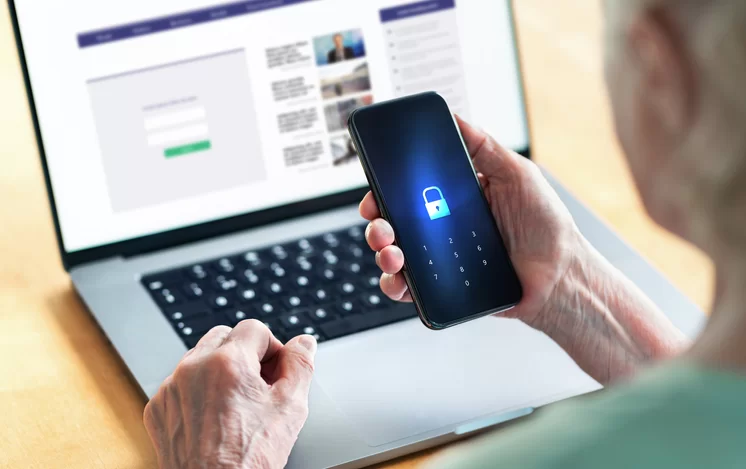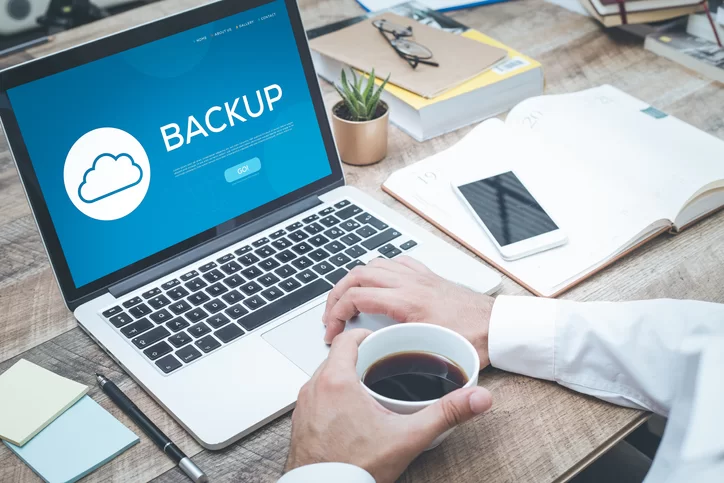Internet security: Practical tips for 2023
Browsing the internet allows us to find interesting websites, access social networks, and make online purchases. Additionally, you can also create your own content and share it in order to find an audience or community with similar interests. However, it is an environment that has become the target of several scams, which can lead to serious losses, such as financial losses or exposure to privacy. Check out tips to protect your data now.
10 tips to be more secure on the internet
10. Strengthen your passwords
Using strong passwords brings much more security on the internet. This is because they become more difficult to decipher by hackers and other people with bad intentions. More secure passwords typically include numbers (without being sequential), special characters such as @,& or %, and upper and lower case letters.
Change your most used passwords from time to time. Avoid names of family members, pets, and birthdays, as these are the most common combinations.
It is important to create different passwords for each registration, to protect yourself in the event of a data leak, and never share your passwords with other people or write them down in easily accessible places.

9. Use 2-factor authentication
Two-factor authentication is an additional security measure you can take to protect your online accounts. With it, you need to provide two forms of identification to access your account, usually a password and a code sent to your cell phone or generated by an authentication application, such as Google Authenticator.
This makes it much more difficult for unauthorized people to access your accounts, even if they have guessed or stolen your password. Therefore, always enable two-factor authentication when this option is available.
8. Bet on a good antivirus
Using a good antivirus is extremely important to protect systems and devices against cyber threats.
It acts as a defense barrier, identifying and removing malicious programs that can cause various damages, such as stealing personal information and compromising the machine’s functioning.
With an updated and efficient antivirus, it is possible to detect threats in real-time, preventing them from spreading and causing damage. In short, antivirus is essential for maintaining the digital health of systems, ensuring a safer and smoother online experience. You can even save when hiring these services using an Avast coupon.
7. Always check links
Checking the authenticity of links on the internet can be crucial for online security. Hackers and cybercriminals often use malicious links to try to steal users’ personal and financial information.
It is important to always check the website URL and make sure it is the official website before clicking on any link. Furthermore, be suspicious even of known contacts such as family or friends if they send suspicious links that contain miraculous promotions or strange messages. To find official brand websites, try searching on Google first.
6. Take care of your data
Be careful about the security of your personal data on the internet, as there is always a risk of cyber attacks and information leaks.
Avoid sharing sensitive information on social networks such as full name, CPF, date of birth, and bank details or photos, even partial ones, of your credit card. Selfies can also be used by facial recognition and artificial intelligence programs, so even your photos end up being valuable data.
5. Be careful with downloads
Always be careful with downloads on the internet, as they may contain viruses or malicious programs that compromise the system’s security. These malicious programs can be used to steal personal and financial information and even control your computer.
Therefore, check the source of the file and use an updated antivirus to verify that the file is safe before downloading it. If you need to hire this service, take advantage of the Avast coupon discounts.
4. Stay up to date
Updating applications and programs can ensure more security on the internet. Updates often include security fixes for known vulnerabilities, which helps protect your data and devices from malicious attacks.
3. Don’t forget the backup
Having a data backup is crucial for the security and protection of personal and sensitive data. It consists of creating copies of important files and data and storing them in a separate location from the original. In case of data loss due to technical failures, a backup may be the only way to recover important information.
It is recommended that backups are made regularly and stored in a safe and secure location. You can have accounts on different cloud storage platforms, or have an external hard drive.

2. Pay attention to Wi-Fi
Using suspicious Wi-Fi networks can put your data at risk of being stolen or hacked, so focus on accessing the internet only on trusted networks like the one at your home or business.
Be careful when connecting to public or unreliable Wi-Fi networks, even if they are free, they can cost you a lot if your device is hacked. Also, avoid transmitting information and sharing files if you are connected to these networks.
1. Pass on security information
In addition to knowing and learning how to protect yourself on the internet, passing on the information acquired to family and friends is essential.
This way, we can help each other and collaborate to build a safer online community. Share this article and keep updating yourself on security and technology here, at Roznama Pakistan.




